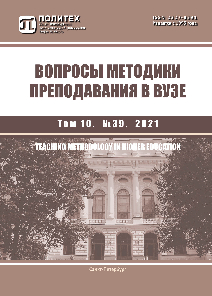Building foreign-language communicative skills in future navigators by means of modeling educational environment
The article discusses the main means of organizing future navigators’ work with English-language maritime material in order to implement the requirements of the International Convention on Standards of Training, Certification and Watchkeeping for Seafarers (STCW).The article analyzes the requirements of the Federal State Educational Standard of Higher Education – Specialty 26.05.05 – Navigation, regulated by International Convention on the Training and Certification of Personnel of Fishing Vessels and Watchkeeping (1995). The scientific novelty of the research is in the fact that the qualification indicators of specialists in maritime professions, in particular, navigators, are theoretically analyzed. The importance of communication skills for the implementation of navigation and management of the crew's activities has been determined. For a productive process of building foreign language communication skills in future navigators, it is necessary that we simulate the educational environment, creating conditions for the comprehensive development of the student's personality. The main components of the educational environment modeling process are considered. The examples of the language material of the reference-testing complex for the study of the maritime language in the conditions of teaching a foreign language are presented. It is noted that the use of multimedia training modules «Educational systems and technologies at sea and river» and referencetesting complexes as the main means of organizing the work of future navigators with English-language maritime material provides productivity of teaching a foreign language. It is concluded that the introduction of innovative methods of foreign language teaching, for example, the reference and testing complex for the study of marine English «Standard Phrases», provides teaching effectiveness and an increase in the level of proficiency in a foreign language.



